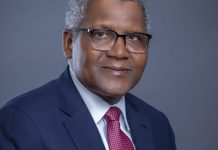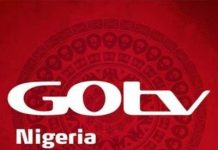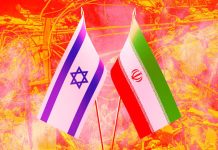As Nigeria inches closer to February 16 general election, the shape of the two-horse race between the All Progressive Congress (APC) candidate, Muhammadu Buhari, and his Peoples Democratic Party (PDP) rival, Atiku Abubakar, is becoming clearer. The two parties look set to do well in their traditional strongholds.
However, intriguing contests are shaping up in a little over a dozen states and this could swing the outcome one way or another.
In this report, The Nation’s Yusuf Alli, Managing Editor, Northern Operation, Sam Egburonu, Associate Editor and Dare Odufowokan, Assistant Editor, shed light on the dynamics of the race in what can now be referred to as the swing or battleground states for the forthcoming polls.

IMO STATE
In the Southeast geo-political zone, Imo State, which is currently administered by an All Progressives Congress-led government, promises to be the hottest state to watch in the coming elections.
This is because the implosion of the political family of the out-going governor, Owelle Rochas Okorocha, had created so much bad blood that the ruling party in the state, the APC, can no longer take it for granted that it would win the race in the state.
RIVERS STATE
Nyesom Wike’s emergence as the state governor, on the ticket of PDP against Rotimi Amaechi’s support, not only returned the state to PDP but marked the beginning of a gripping political rivalry that has held the breathe of Nigerians.
Because Amaechi, the current Minister of Transportation is also both the Director-General of Muhammadu Buhari’s Presidential Re-election Campaign and also the leader of ruling APC in the state and the whole of the South-south zone, the expectation is high that he ought to ensure APC’s victory in his state in all the elections. Both because of the high offices he currently occupies and the fact that it has become a personal battle between him and his former ally, the permutation has been that Amaechi will put in all he has both to deliver Rivers to Buhari and to reclaim his position as the political leader of Rivers.
Paradoxically, the same pressure is on Governor Nyesom Wike to deliver Rivers to PDP. Those who followed the political battle from the onset can recall that Wike enjoyed unalloyed support of the former First Family, the Jonathans, when he contested for the office of the governor of the state against the endorsement of Amaechi.
Since then, the two rivals have further tightened their belts, thus making the struggle for the soul of Rivers even more arduous.
The matter was further complicated the upper weekend when the Independent National Electoral Commission (INEC) omitted APC candidates as it released the final list of Presidential and National Assembly Elections candidates.
Observers said the implication of non-inclusion of the APC candidates on the list is that the party would not partake in the elections in the state. If this is true, it would mean that APC and Amaechi had been defeated technically.
DELTA STATE
The general elections in Delta, which has remained a PDP state since 1999, will also be interesting. Given that the party has continued to grow under the leadership of Governor Arthur Ifeanyi Okowa of PDP, there is the tendency to speculate that PDP would still win this year’s elections there.
It would be recalled that out of the 1,267,773 valid votes cast in the state during the 2015 presidential election, PDP got 1,211,405 votes, while APC got 48,910 votes.
That year also, the party won the governorship election with a great margin.
The Returning Officer for the election, Prof. Bio Nyananyo, had announced in Asaba that Okowa won the election as he polled 724,680 votes to beat his closest rival, Chief Great Ogboru of the Labour Party then, who got 130,028 votes, while Chief O’tega Emerhor of APC then made the third position with 67,825 votes.
Looking at these figures, one would ordinarily write off any party contesting with the ruling party, PDP, in Delta.
But today, so much has happened in the politics of the state, especially within the opposition APC. For example, the defection of the former governor of the state, Dr. Emmanuel Uduaghan, to APC last year is considered a major plus for APC.
But informed observers wonder if such gains are enough to defeat PDP leadership in the state and win votes for Buhari?
Also, Great Ogboru, who came second in 2015, with Labour Party, then a less popular party, is now flying the APC flag. This will be a big boost for APC both for the governorship and the presidential election.
If one adds Ogboru’s factor and Uduaghan’s influence, it seems certain that APC is poised to do better than it did in 2015 in Delta, when it came third.
AKWA IBOM
Beyond ongoing rhetorics between the two leading political parties in the state, the 2019 General Election in Akwa Ibom State will be nothing short of a political battle for the very soul of the state, pundits have predicted. For the very first time since the nation’s return to democracy in 1999, the Peoples Democratic Party (PDP), which has been in charge of the governance of the oil- rich state, is seriously being challenged by an opposition party in the race for the political leadership of the state.
Going by recent political events in the state, it is very convenient to say both the PDP and the APC are well rooted in the nooks and crannies of the state, no thanks to the political division between former Governor Godswill Akpabio and his erstwhile political godson, current Governor Udom Gabriel Emmanuel. Following the unexpected decision by the former, who was also the Minority Leader of the Senate at the time, to dump the PDP and pitch his tent with the All Progressives Congress (APC), the political permutations in the state have changed drastically.
Before Akpabio’s political disengagement with the PDP, the state was a PDP stronghold in every sense of the word. Apart from the fact that the party has been in charge of the state since 1999, no opposition party had recorded any meaningful performance against the PDP in any major election before now. Across the state, the people have over the years, largely associated with the PDP save for pockets of opposition figures here and there.
But with the defection of Akpabio and his political family into the APC, reliable sources across the state say the politics of the state is now symbolized by a sharp division of the people into PDP supporters and APC supporters.
“Something unprecedented is happening in Akwa Ibom. Everywhere you turn to, you now find supporters of both the PDP and the APC slugging it out, unlike in the past when the PDP was the family party of the people of the state,” a journalist working in the state said.
OGUN STATE
Developments suggest that the forthcoming general elections in Ogun State will feature unusual contests.
On the candidates’ list released by the Independent National Electoral Commission (INEC), oil magnate, Dapo Abiodun from Iperu in the Remo axis of Ogun East, is the candidate of the All Progressives Congress (APC) while Senator Buruji Kashamu, representing Ogun East Senatorial District in the National Assembly, is the flag-bearer of the Peoples Democratic Party (PDP).
Also on the list of candidates released by INEC are, Egba-born former Speaker of House of Reps, Dimeji Bankole as flag bearer of the Action Democratic Party (ADP) and a two-time governorship candidate, Gboyega Nasiru Isiaka, who now flies the ticket of the African Democratic Congress (ADC). Isiaka, who is from Yewa in Ogun West, was the candidate of the PDP in 2015. Adekunle Akinlade of the Allied Peoples Movement (APM) is also in the race from Yewaland.
In addition to this, the internal crisis that is troubling the ruling APC, following Governor Amosun’s controversial decision to oppose the ambition of Dapo Abiodun, the party’s gubernatorial candidate and support his preferred successor, Adekunle Akinlade of the little known APM, has also heightened the political situation in the state while weakening the support bases of the APC across the state in the guber contest.
Also, the emergence of Hon. Ladi Adebutu as factional candidate of the opposition PDP amidst endless litigations and violent clashes between the two factions of the party in the state, has added to the uncertainties surrounding the governorship race in Ogun State. While INEC, as electoral umpire, says Kashamu remains on its list of candidates, the PDP national leadership recognizes Adebutu as its candidate.
INEC said it is obeying a valid court judgement by recognising the list submitted to it by Kashamu’s faction of the opposition party in the state. But Adebutu, who had earlier been named as the candidate by the national leadership of the party, while relying on an Ibadan Appeal Court judgement, is insisting that he is the rightful flag-bearer of the opposition party. In a bizarre twist of the crisis in the party, the two ‘candidates’ have been going about campaigning, with their supporters clashing regularly.
With the above scenario, the 2019 governorship in Ogun State is playing out as a war of zones, as all the four zones in the state are now having at least one major candidate in the race. This is contrary to the desire of Governor Amosun and other notable political leaders in the state, including former President Olusegun Obasanjo, to restrict the race to a contest between candidates from the Yewa axis of the state.
The Ogun West Senatorial District is yet to produce a governor since 1976 when the state was created, and Amosun was determined to break the jinx. He campaigned vigorously for the ticket of the APC to be zoned to the area and he almost achieved that before the party’s NWC overruled his consensus arrangement and ordered a direct primary election which Dapo Abiodun, from Remoland, a zone in Ogun East Senatorial District, won.
The PDP from day one never zoned the governorship ticket to Ogun West. Both factions of the party in the state seem to have their eyes on producing a candidate from Ogun East too, as no serious contender emerged from Ogun West and Central all through the process leading to the primary elections of the Adebutu and Kashamu factions of the PDP.
Like Abiodun, Kashamu is from Ogun East and currently represents the district at the National Assembly. But he is from Ijebuland, another zone in the area which has also been clamoring to be given a chance to produce the governor of the state, 36 years after the late Bisi Onabanjo, its only son to have been governor of the state, left office. His supporters say Abiodun from Remo cannot be governor just eight years after Gbenga Daniel, another Remo man, left office.
From Ogun Central, made up of the Egbas, former Speaker Dimeji Bankole is in the race. He is unperturbed by the fact that outgoing governor Amosun is from the same zone as himself. He says zoning should not rob the state of the best hands for the job. The congress that produced him took place in all the 20 Local Government Areas and 236 wards in the state, according to the Returning Officer for the primary election, Mr. Chamberlain Amadu.
Not to be left out, the Yewas of Ogun West, preferred by Amosun and other opinion leaders to have the seat, have Isiaka in the race, but on the platform of little known ADC, having failed to bag the ticket of any of the two leading political parties. Akinlade, the preferred candidate of Governor Amosun, had defected from the ruling APC to the APM, to keep the Yewa agenda alive.
KWARA STATE
The state is a major focus point because the threat to the status quo as symbolized by Saraki Dynasty is real. Although the scion of the dynasty, Senate President Bukola Saraki, may be travelling about with the PDP presidential candidate, Atiku Abubakar, there is fire on the mountain at home.
The spate of violence in the past two weeks underscored the prevalent do-or-die politics in the state. While the ruling PDP does not want to relinquish its grip on power, the wind of change blowing from the direction of the APC has been like a Tsunami.
Analysts see the electoral map here as fluid with the three senatorial districts left open to be won either by PDP or APC.
None of the two leading parties can boast of an outright win in any district. Saraki, who represents Kwara Central Senatorial District, has a date with his closest rival, Dr. Ibrahim Oloriegbe, who was a former member of the State House of Assembly. The contest is reminiscent of the duel between David and Goliath. For Oloriegbe, who was once a product of the dynasty, his record of selfless service as a medic and as well as coming from a respected family, will make the contest tough. His greatest advantage is the mass discontent against the Sarakis.
Despite the power of incumbency, it won’t be an easy ride for Saraki in Kwara Central District. In the last one month, the Senate President has retreated to fault lines for political survival and to retool his campaign machinery, but the people of Ilorin Emirate who dominate the district, are now sharply divided for and against him.
KOGI STATE
How the APC will wriggle out of its political quagmire in Kogi State is a development political scientists are watching with keen interest. The party will have to contest with others in February for the Presidential, National and State Assembly polls and in November for the governorship seat.
The ghost of the late Governor Abubakar Audu is still haunting APC and Governor Yahaya Bello, who has tried to re-write history after benefitting from Audu’s mandate.
Out of the three senatorial districts, APC remains solid in Kogi Central which is largely populated by the governor’s Ebira kinsmen. There had been a few protests against Bello in the Central district but the governor has engaged in arm-twisting and outright political witch-hunting to retain his grip.
But the party needs extra salesmen to regain the confidence of Kogi East (Audu’s fortress) in the next strands of election. The management of the aftermath of Audu’s death – including the hounding of his son – looks set to hurt the ruling party.
BAUCHI STATE
Within two weeks, the political calculations in Bauchi State have changed with PDP losing most of its heavyweights to APC. Although Governor Mohammed Abubakar was initially opposed by the elites in the state, the intervention of President Buhari and members of the ruling mafia in the North have altered the dynamics significantly.
Many PDP bigwigs in the last 15 days have defected to APC, among them a former Secretary to the Government of the Federation, Yayale Ahmed; a former National Chairman of PDP, Adamu Mu’azu; ex-Governor Isa Yuguda; ex-Deputy National Chairman of PDP, Senator Babayo Garba Gamawa; a former Deputy Governor, Abdulmalik Mahmood; Kaulaha Aliyu; a former National Organizing Secretary of PDP, Dr. Musa Babayo; Senator Abubakar Maikafi and Ambassador Adamu Jumba.
The PDP has the Speaker of the House of Reps, Yakubu Dogara, as the arrowhead of its campaign in the state. Being a minority Christian, his comments and conspiracy in the National Assembly against the president have diminished the chances of the main opposition party because the Hausa-Fulani oligarchy cannot understand why the Speaker would join forces against Buhari.
Despite the fact that the PDP governorship candidate, ex-FCT Minister Bala Mohammed, has done so much to gain mileage for the party, the state may witness a relapse to old Hausa-Fulani/Muslim versus minority/Christian voting pattern.
The ex-minister has empowered many, offered scholarship, renovated mosques and won the hearts of many. But Dogara and his colleagues in the National Assembly from Bauchi State have proved to be more of liabilities than assets to PDP.
Yet Bauchi State is under watch in order to see the magic wand the new generation of leaders led by Dogara, will deploy to upstage these APC bigwigs. A source said: “PDP is banking on poor performance of the governor as a major campaign issue.”
BENUE STATE
All the parties have a huge task at hand to take their campaign to the nooks and crannies of 23 local government areas in the state. The politics has largely been personality-based, but has also been coloured by economics, ethnicity and religion in the light of the herdsmen killings witnessed in the last two to three years.
With over 70 per cent of the people dependent on agriculture, the farmers-herders crises had affected and displaced thousands of peasants in the rural areas from the dominant ethnic groups especially the Tiv, the Idoma and the Igede.
Governor Samuel Ortom has capitalized on the farmers-herders crises as a weapon to secure his second term ticket. The anti-Fulani sentiments in the state have grown to the extent that President Buhari and APC are despised.
Ortom went a step further in the week to apologize to the people of the state for leading them to APC in 2015. The joining of forces by Ortom and ex-Governor Gabriel Suswam, who has an axe to grind for being put on trial for alleged corruption by the APC administration, has made the PDP more formidable.
KADUNA STATE
The battle in Kaduna State is purely of an ethno- religious dimension and it is already taking this shape. In fact, the Governor of Kaduna State, Mallam Nasir el-Rufai, alluded to it in a television interview when he said the people of Kaduna South District, comprising eight local government areas will not vote for him because they see APC as an Islamic party.
Intriguingly, the party is offering a Muslim-Muslim governorship ticket in a state notorious for sectarian conflict.
A source in the state said: “The Muslim-Muslim ticket might look insensitive, it appears politically expedient now for APC to win huge votes in view of how a Bishop from Kaduna South teamed up to reconcile ex-President Olusegun Obasanjo and PDP presidential candidate, Atiku Abubakar. The reconciliation paved the way for the emergence of Atiku.”
KANO STATE
With available votes of 5.4 million, Kano State attracts special attention because any party which secures a huge chunk of its votes can coast home to victory at the presidential poll. In 2015, the APC presidential candidate, President Muhammadu Buhari won 1,903,999 votes in Kano compared with PDP’s 215, 799 votes garnered by ex-President Goodluck Jonathan.
The exit of ex-Governor Rabiu Kwankwaso from APC to PDP is expected to improve the fortunes of the opposition party. But Kwankwaso’s defection has left PDP more divided due to the imposition of his son-in-law, Abba Kabiru Yusuf, as the party’s governorship candidate.
In February, the onus will be on Kwankwaso to prove that he controls the politics of Kano by installing a new governor and prove to the world that he can still deliver more than 1,903,999 votes to PDP.
How the opposition presidential candidate will defeat Buhari in Kano is a big hurdle and litmus test.
ADAMAWA STATE
The people of the state are caught between two choices of producing a home-bred president or voting for their son-in-law Buhari to remain in office. This is a testy moment for Atiku more than Buhari because he has a lot at stake. If he defeats Buhari in Adamawa, he would boost his political profile as primus inter pares in the state. But if Atiku suffers any setback, he would join the league of the likes of ex-President Olusegun Obasanjo who lost in his home state.
The performance of Governor Jibrilla Bindow (from a minority tribe) has added value to Buhari’s campaign. Also, the nomination of game changers like Senator Binta Mashi and Hajiya Aishatu Ahmed Binani and other mobilizers at the grassroots have made winning the state an uphill task for Atiku.
Our findings show that the governorship candidate of PDP, Umaru Fintiri, popularly called “The ATM” by civil servants due to prompt payment of salaries when he was Acting Governor of the state, has made the turf tougher. Fintiri is giving Bindow an electioneering headache because of ‘the ATM perception’.

TARABA STATE
Ordinarily, Governor Darius Ishaku and the PDP is not expected to sweat for victory in February because power rotation in the state favours Southern Zone where Ishaku hails from. Since 1999, Taraba North and Central districts had held powers and in compliance with the unwritten pact among stakeholders in the state, the governor ought to spend two terms in office to complete the slot of the Southern zone.
But the emergence of a former Minister of Women Affairs and Social Development, Aisha Alhassan and former Acting Governor of the state, Sani Danladi, as the candidates of United Democratic Party (UDP) and the All Progressives Congress (APC) respectively, are threatening the power sharing formula in the state. Both Alhassan and Danladi are from Taraba North which produced the state governor (jailed Jolly Nyame) from 1999 to 2007. Nyame’s successor, the late Danbaba Suntai, was from Taraba Central.
The development has ignited ethnic and religious politics in the heterogeneous state. The major tribes in Taraba are Jenjo, Jibana, Kuteb, Chamba, Yandang, Mumuye, Mambila, Wurkum, Fulani, Jukun, Ichen, Tiv, Kaka, Panso, Kambu, Wawa, Vute, Tikari, Hausa and Ndola.
Taraba is in focus because this year’s election outcome will be determined by the spate of insecurity occasioned by farmers-herders clashes, the inter-tribal conflicts like Tiv-Jukun crisis, the Hausa-Fulani factor, religious sentiments and performance of the current governor.
The PDP may also have a working alliance with UDP during the presidential poll because Alhassan is a die-hard loyalist of Atiku Abubakar.
To Buy Cheap MTN & GLO Data




![[BREAKING] SYLVESTER OROMONI: LAGOS ORDERS INDEFINITE CLOSURE OF DOWEN COLLEGE ~ Fame News](https://www.famenewsonline.com/wp-content/uploads/2021/12/dowen-218x150.jpg)



































